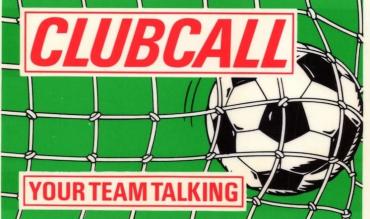IN those days before the internet, a really good way of following all the latest news from your favourite football team was on Clubcall.
This was a Premium Rate telephone service that was launched in 1986/87 with the unprecedented mantra of “24 Hours A Day, Seven Days A Week”.
The top half a dozen clubs in the country were signed up to begin with and each of them were allocated a specific 0898 phone number that their supporters could ring.
In effect, Clubcall brought a daily diet of news and interviews from each team plus live updates on every home and away game.
It was run by BT Supercall from a three storey building in Downham Road, Dalston, East London. A network of broadcast journalists provided the content.
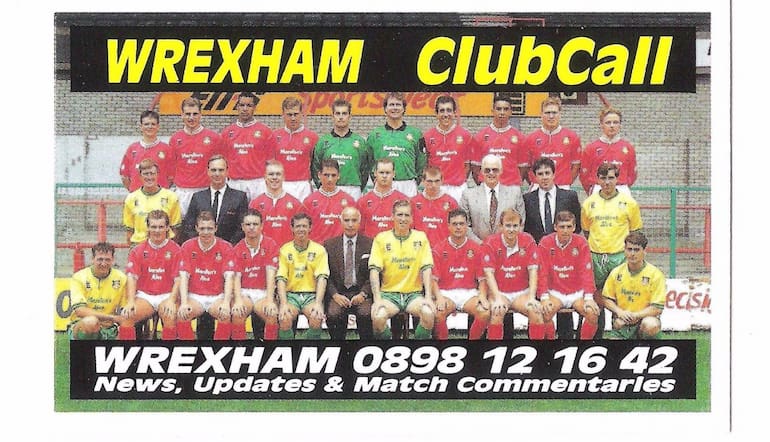
If I remember correctly, calls were initially charged at 25p per minute but gradually rose to 60p per minute in later years. These fees were divided between BT and the clubs on a revenue share basis.
By 1987/88, nearly all the remaining First Division (now Premier League) clubs had joined Clubcall.
A further expansion occurred for the following season with most of the other Football League teams being recruited. The leading Scottish clubs were on board by that point too.
My own involvement began early in 1987 when I had a meeting with a management executive at Downham Road. I suggested that there should be a generic Non-League Clubcall line as there was huge collective interest in clubs outside the Football League.
I was initially met with a firm “Don’t call us, we’ll call you” response.
Then about six months later, Clubcall appointed a new marketing manager called Charles Webster. He was a big supporter of Gravesend & Northfleet FC and he told a management meeting: “We should have a Non-League Clubcall line.”
A totally unique item in my football library at home is a wallet containing a Clubcall card from every club in the country@fcbusiness pic.twitter.com/MisSGSdH9n
— Tony Incenzo - football reporter (@TonyIncenzo) June 20, 2017
The reply was: “Funnily enough, we had a guy called Tony Incenzo come into the building and say the same thing!”
I suddenly received a phone call from Clubcall’s editorial chief Mark Rooney who invited me back for another chat with Charles and himself. The upshot was that I was asked to launch Non-League Clubcall on 1st September 1987.
This was a huge break for me as it was my first voice work role after training as a written journalist on my local newspaper. Non-League Clubcall quickly attracted thousands of calls.
Mark and Charles were delighted with the success of the service and gave me great help and encouragement. I broadcast Non-League news, interviews and fixtures each day plus all the latest match results on Saturdays and in midweek.
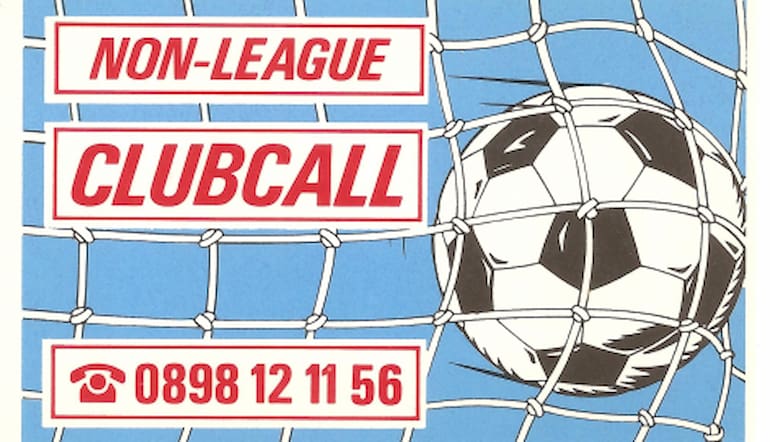
I say “broadcast” but I actually prefer to think of it as “narrow-casting”. I was actually targeting a select group of people who were interested in Non-League football first and foremost.
Within 12 months, I was put in charge of new official Clubcall lines for the Conference (National League), Isthmian League, Northern Premier League and Southern League.
My overall Non-League portfolio continued to expand after that with other leagues joining such as the North West Counties League and the Eastern Counties League. I also edited Clubcall lines for several Non-League clubs including Barnet and Sutton United.
We even sponsored the Clubcall Cup, which was a knockout competition for the leading Non-League teams. I was invited along to present the trophy after the yearly final took place.
In 1991, I was head hunted as Clubcall editor for Queens Park Rangers in the top flight of English football. I saw this as a huge honour as they are my local club that I have always supported.
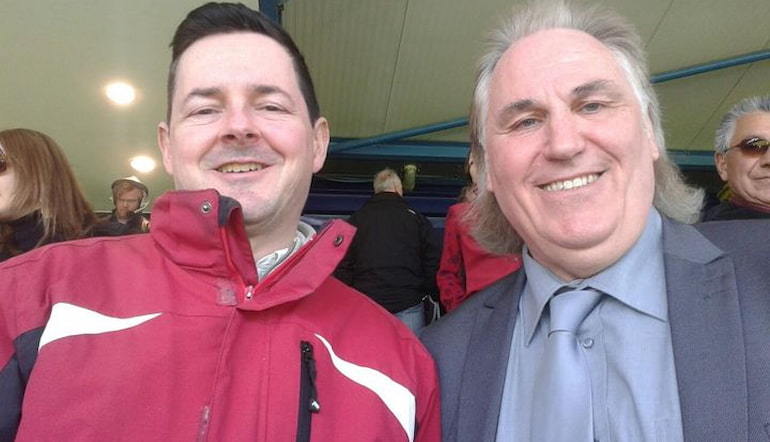
QPR Clubcall reached its peak with the shock resignation of manager Gerry Francis in November 1994. I had a very close working relationship with Gerry and he decided to give me his only interview at the time.
It took 16,000 calls on Clubcall in 24 hours. This was a staggering figure when you consider that QPR’s average home matchday attendance that season was 14,600.
Another interesting anecdote concerns former QPR chairman Richard Thompson. He once rang Clubcall on his car phone to hear my report on an away game.
Thompson subsequently forgot to replace the handset and accidentally left the call running overnight with my voice on loop. The bill topped £500!
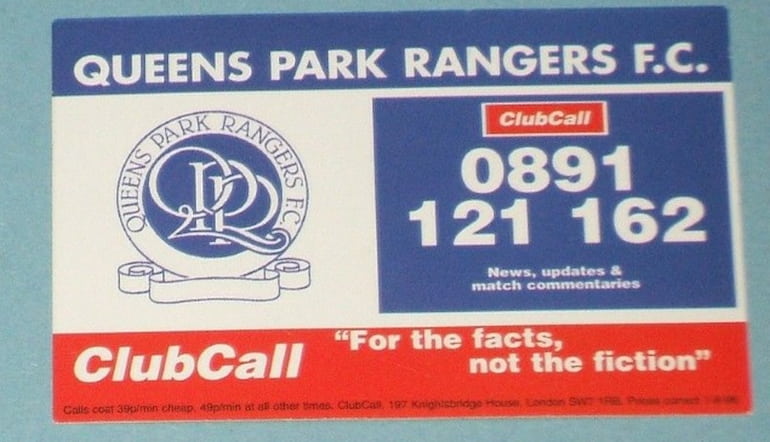
Then there was the famous occasion where QPR hammered Manchester United 4-1 at Old Trafford. I got very excited by this and started my post-match Clubcall report in Norwegian commentator style by shouting:
“Bobby Charlton can you hear me? George Best, Dennis Law can you hear me? Mark Hughes, Paul Parker can you hear me? Your boys took a helluva beating!”
In total, Clubcall made a profit of nearly £1.25 million for Queens Park Rangers FC during my 14 years as editor. I am very proud of this amount as it came at a time when the R’s didn’t have huge financial resources.
Since then though, the rapid growth of the internet has killed off the viability of football’s Premium Rate telephone market. As a consequence, none of the 92 League clubs still have an official Clubcall line.
But the concept was a fabulous money spinner while it lasted.
*Credit for all of the photos in this article belongs to @TonyIncenzo*
FIRST PUBLISHED: 27th July 2022
